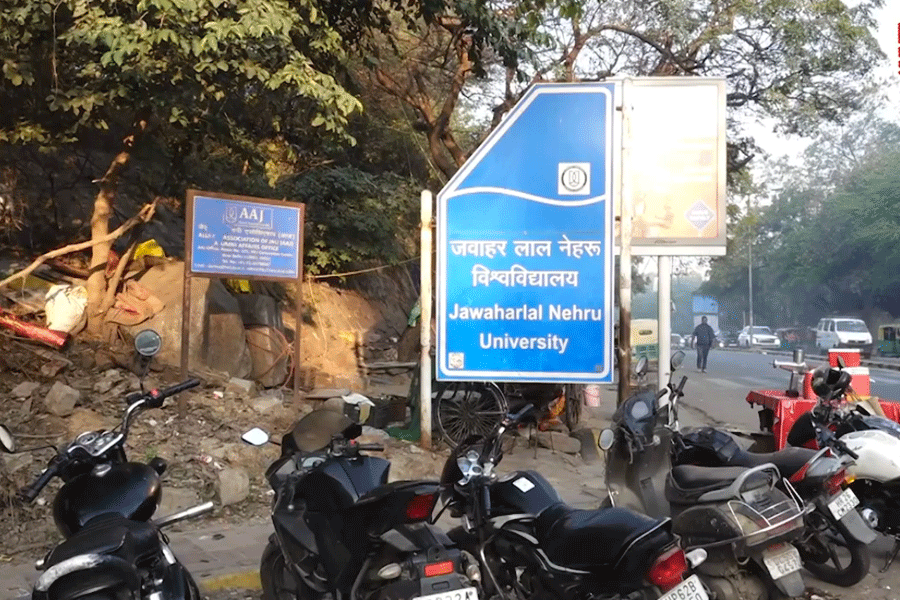 |
| Writer Indibor Deori speaks at the seminar in Gauhati University on Sunday. Telegraph picture |
Guwahati, Feb. 17: Writer Indibor Deori said the reasons that led Tiwas to get involved in the Nellie massacre, whose 30th anniversary was observed today, have been neglected by researchers and writers.
More than 2,000 people, mostly Bangladeshi migrants were killed in the incident at Nellie in Morigaon district.
Speaking at a seminar on “Three Decades of Nellie: Question of Unity and Integrity”, organised by two NGOs Nyay Aru Samata Sabi Samiti Assam and Ayna at Guwahati University today, Deori said people usually hold the Tiwa community, who comprised around 80 per cent of the attackers, overlooking the factors that prompted them to get involved.
Deori said the gradual expulsion of Tiwas from the land they had cultivated for generations and incitement by the leaders of Assam Movement were the major reasons that led to their involvement in the incident.
He narrated how the land of the Tiwas in Nellie and nearby areas was systematically taken over by a few rich migrants, rendering them landless.
Deori said “circumstantial evidence” and “not any concrete proof” indicates the Tiwas were incited by leaders of the Assam Movement to rise against the migrants.
“After Independence, the migrant population form Bangladesh was allowed to settle in Nellie. Since the migrants knew better cultivation practices, they prospered and a few rich among them started buying land from the Tiwas, who lagged behind,” said Deori.
Deori said eviction carried out by the state government to acquire 1,500 acres of land to set up Nagaon Paper Mill had made 2,500 (officially 1,500) Tiwas landless.
Deori said the Tiwas (earlier known as Lalung) were the most advanced indigenous community in Assam, who took the leading role like holding the first conference of Tribal League in 1933. “They formed the Lalung Xanmilan and Lalung Satra Xanmilan, when other communities did not have such organisations.”
“It was the Tiwas who organised the Phulaguri Dhewa, a peasant uprising in Phulguri near Nellie in 1861, protesting land revenue imposed by the British. The three who were executed and five of the seven exiled to Kalapani by the British for involvement in the uprising were Tiwas. The community had an independent spirit even during the Ahom rule and they had an autonomous status,” said Deori.
“But we have seen that people try to analyse the Nellie incident without knowing about Tiwas. It is time for us to understand each other better,” he said.










